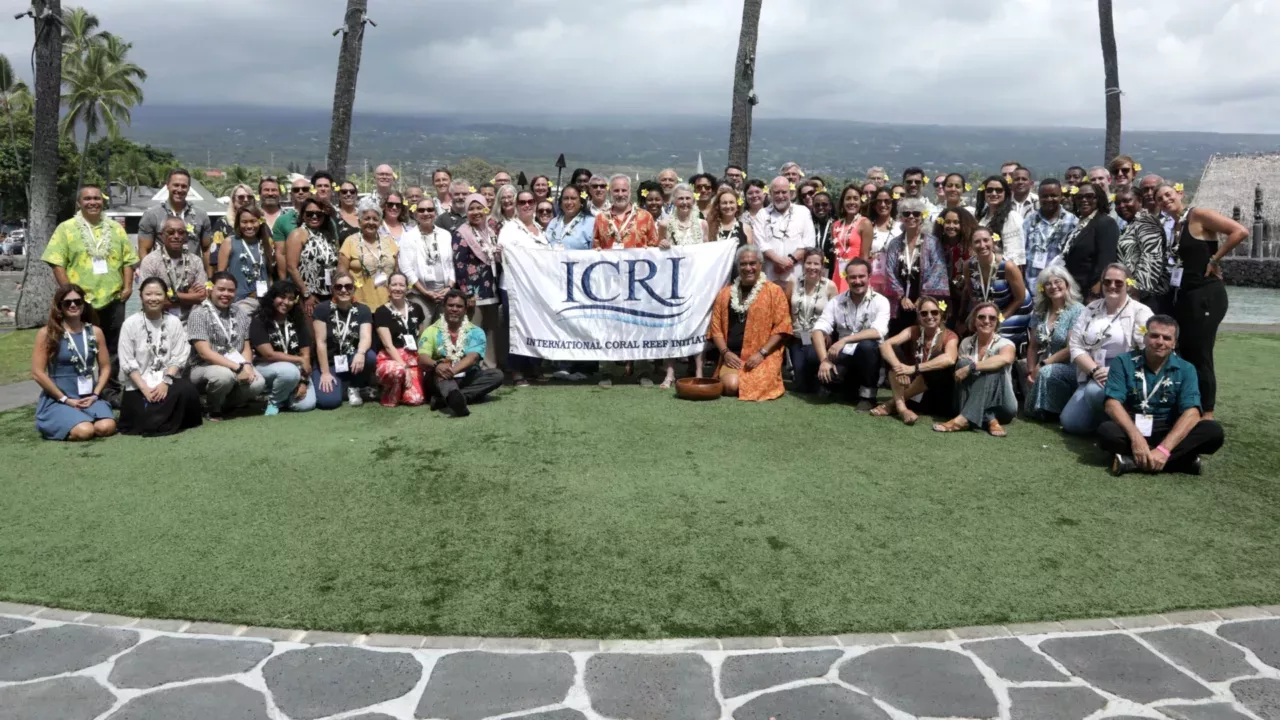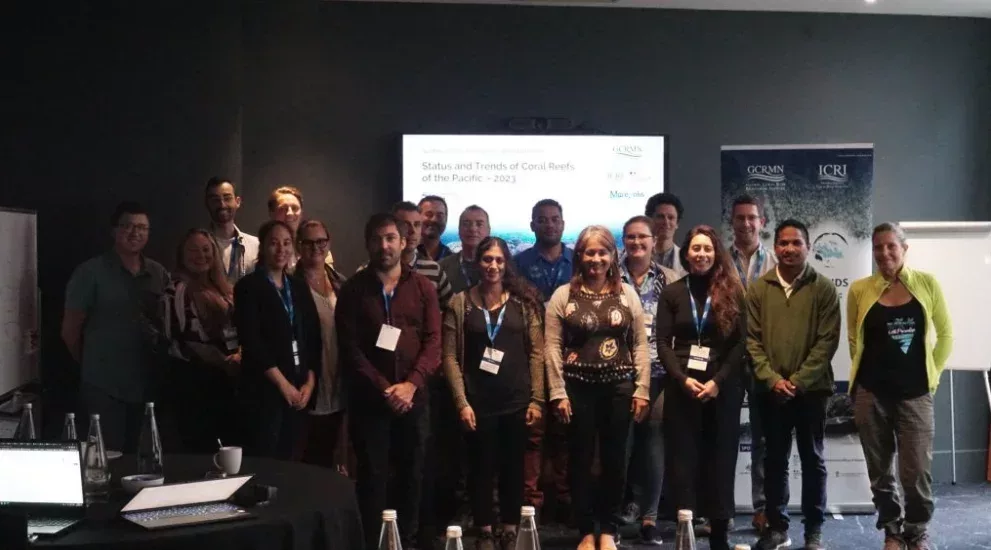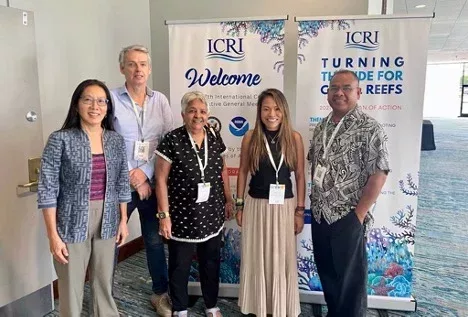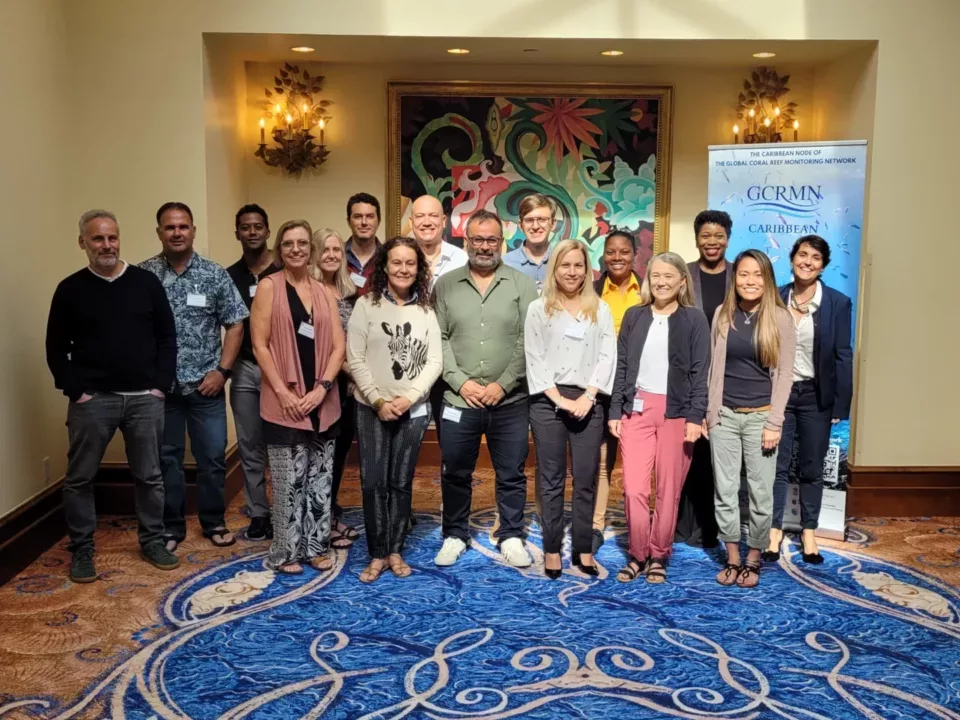
More than half of the global population is now under 30, with many countries struggling to educate their growing numbers of youth. According to the UN World Programme of Action on Youth, children and young people are particularly vulnerable to climate impacts, especially when it comes to food security and health. Therefore, whilst young people can be informed and motivated to protect nature, they need to be empowered to do so.
Coral reefs are vital ecosystems that support a staggering biodiversity, providing a habitat for countless marine species. However, these delicate ecosystems are under severe threat due to climate change, pollution, and overfishing. The creation of a video series featuring experts in the field, allows access to in-depth knowledge about the significance of coral reefs and the imminent dangers they face. Such a platform allows scientists, conservationists, and researchers to share their insights, presenting a comprehensive understanding of the issues at hand. Moreover, the visual and engaging nature of the videos facilitates a broader reach, making complex scientific information more accessible to a diverse audience. The series serves as a powerful tool to inspire collective action, fostering a sense of responsibility and encouraging viewers to contribute towards the preservation of coral reef ecosystems.
Through the financial contribution from the Government of Sweden, ICRI has produced a series of short, interview-style videos (1 to 2 minutes), collectively released as the ‘Ask the Expert Series’. The videos have been structured in a Question & Answer format with internationally recognised experts. A total of 10 videos have been produced, with an 11th special compilation entitled ‘What if Coral Reefs Disappeared in 2050’.
The videos have been formally released and are hosted on the ICRI website (on the “about coral reefs” webpage, the second most visited web page on ICRIForum) and also widely disseminated through the ICRI social media channels, including YouTube, Twitter, and LinkedIn. For each video, subtitles are available in French and Spanish.
The 37th General Meeting (GM), the second of the United States of America’s third tenure chairing the International Coral Reef Initiative (ICRI), brought together ICRI members from around the world face-to-face for the first time since the 34th General Meeting in Townsville (Australia) in 2019 to discuss the achievements of ICRI and its members, share knowledge and experiences, and drive the implementation of the 2021 – 2024 Plan of Action: Turning the Tide for Coral Reefs. Over 80 participants from 40 ICRI members gathered over four full days to take part in 12 productive sessions. The GM was centred around Theme 4 of the ICRI Plan of Action (2021 – 2024) and called for expanding diversity and inclusion within the coral reef community.
Financial Support from the Government of Sweden played a significant role in ensuring the smooth and successful execution of the event.
Read the Summary Record here.

Over the last 10 years, the Global Coral Reef Monitoring Network (GCRMN) has adopted a new approach, based on the analysis of standardised monitoring data. The recent “Status and Trends of Coral Reefs of the World: 2020” GCRMN report has been produced using this approach and has made it possible to estimate temporal changes of hard coral and algae cover at the global and regional scales, between 1978 and 2019.
In that context, the GCRMN Pacific regional node is working on a new GCRMN report for the Pacific region, to update the previous one, which was published in 2018, with the latest monitoring data from 2016. Until now, data from more than 4,000 surveys on benthic cover across the region have been integrated.
This new GCRMN Pacific report will also be used as a case study for the integration and analysis of coral reef fish abundance and biomass. While such indicators have been included in previous GCRMN regional reports, they were not reported in a similar quantitative way to benthic cover. Particularly, fish abundance and biomass data are more challenging than benthic cover data in terms of data integration and analysis due to natural variability, observer bias, and methodological differences.
The co-authors of GCRMN reports are not simply data contributors but are invited to participate in the discussion, redaction, and review of the different chapters, making it possible for the editors to benefit from their expertise and their knowledge of coral reefs they monitor. For this reason, the production of a GCRMN report includes the organisation of an in-person meeting to facilitate this process. In that frame, the editors of the new Pacific GCRMN report, convened at a workshop dedicated to the new report, held in Auckland, New- Zealand in November 2023, with funding contribution provided by the Government of Sweden.
Learn more about the workshop here.

The Global Socio-Economic Monitoring Initiative for Coastal Management, or SocMon, is an initiative aimed at helping coastal managers better understand and incorporate the socioeconomic context into coastal management programs. This initiative is being implemented at the global and regional levels. It is becoming more and more important to integrate SocMon data into the Global Coral Reef Monitoring Network (GCRMN), an operational network of ICRI.
Therefore the contribution from the Government of Sweden allowed the support of some regional coordinators to participate in the ICRI 37th General Meeting and GCRMN Steering Committee meeting.

SocMon Communications
The importance of graphic design in the context of global SocMon communications is inherently tied to the broader significance of science communication. In an era where scientific advancements and environmental issues are increasingly complex, effective communication becomes a linchpin for fostering understanding and engagement. Graphic design serves as a catalyst in translating intricate scientific data and comprehensive reports into accessible and visually compelling formats. Through the Swedish Contribution, SocMon was able to create a PowerPoint slide set, helping to capture attention of a diverse audience, crucial to promoting inclusivity and ensuring the valuable information reaches a wide spectrum of stakeholders. Additionally, the creation of two strategically crafted infographics further enhances the communication arsenal. These infographics focus on key elements such as the Global SocMon timeline, strategic plan goals, and a visual representation of the distribution of assessments across SocMon regions from 1998 to 2020, as well as highlighting assessment milestones.
These visual aids not only contribute to the aesthetic appeal of the communication materials but also serve as powerful tools for conveying information efficiently, facilitating a deeper understanding of the intricacies of SocMon initiatives and achievements. As a result, the financial support that allowed the creation and design of these resources is indispensable in effectively disseminating crucial information and fostering a greater global awareness of SocMon’s goals and accomplishments.
In 2014, UNEP initiated a Global Coral Reef Partnership with Regional Seas Programmes and Action Plans to address the plight of the world’s coral reefs by promoting development, adoption and use of tools that apply an ecosystem-based approach in coral reef management. Since 2014, the UN Environment – Caribbean Environment Programme (UN Environment – CEP) and the Regional Activity Center for the Specially Protected Areas and Wildlife Protocol (SPAW-RAC) under the Cartagena Convention have been working on the revitalisation and strengthening of the Caribbean Node of the Global Coral Reef Monitoring Network (GCRMN- Caribbean)1 to promote the national adoption and use of regional monitoring standards established by the GCRMN.
The mission of the GCRMN-Caribbean is to ensure the collection of useful, comparable and accessible data that can reveal the status and trends of the coral reefs in the Caribbean region, the promotion of an integrated monitoring approach and the creation of a regular, robust and strategic reporting to influence coastal management decision-making at the regional, national and local levels.
In order to move forward and keep momentum, the network needs to strengthen the link between its members and dedicate time to discuss effectively on the next steps for the implementation of the work plan. The financial support from the Government of Sweden allowed the GCRMN-Caribbean SC Members to organise an in-person Steering Committee meeting in 2023.
Read more about the meeting here.

Following the adoption of the GBF in December 2022 at the fifteenth meeting of the Conference of the Parties (COP15) of the CBD, coral reefs, and their associated ecosystems, are not explicitly referenced within the framework’s 4 goals and 23 targets. However, the GBF remains highly applicable to coral reefs and their associated ecosystems. In this light, it is imperative that ICRI retains its valuable supportive role to CBD parties demonstrating how, and where, coral reefs and their associated ecosystems can be conserved, protected, and restored through the framework. A key mechanism for this is National Biodiversity Strategies and Action Plans (NBSAPs).
NBSAPs are the main vehicle for implementation of the CBD at the national level and are expected to be a key component of the enhanced planning, monitoring, reporting and review mechanism of the Convention for the GBF. In decision 15/6 (Mechanisms for planning, monitoring, reporting and review), Parties are requested to submit revised or updated NBSAPs, including national targets, by CBD COP16, following the guidance provided in annex I of the decision, aligned with the goals and targets of the GBF. NBSAPs are an umbrella process under which all national targets and actions relevant to the GBF can be planned, implemented, monitored, reviewed, and enhanced. They are the main instrument through which Parties establish and communicate their national contribution towards the Framework and its goals and targets and should involve and facilitate the engagement of all government sectors at all levels of government, and all stakeholders, indigenous peoples and local communities, and youth across society.
The NBSAP ad hoc committee (AHC) was adopted by the International Coral Reef Initiative (ICRI) at the 37th General Meeting in Kailua-Kona, Hawai’i, United States of America.
The objectives of the ad hoc committee are to:
- Prepare a timeline for the implementation of the Terms of the Reference, according to the ICRI Rules of Procedure;
- Develop a guidance document for revising, updating and implementing NBSAPs to integrate coral reef ecosystems, including guidance on reporting and coral reef indicators, populated with the national case studies, and appropriate alternative resources that align with, and build upon, the GBF Monitoring Framework and previous ICRI ad hoc committees;
- Develop national case studies for interested and volunteering countries;
- Organisation of an event at the COP16.
